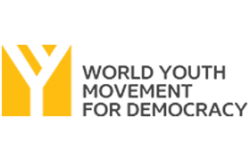To start negotiating with each other and not against each other
A new paradigm of negotiations of Kosovo and Serbia is necessary: an essential change in the approach which so far has had everybody’s principal support, but nobody’s genuine support
It is not known when negotiations between Serbia and Kosovo will continue at an intense level, but this will certainly happen in dramatically different circumstances compared to those under which the Washington Agreement was signed.
The new Government and new President in Kosovo, new negotiator from Serbia at the head of the Kosovo Office, (certainly) new indictments of the Specialist Chambers in The Hague; at international level – new President and new administration in the USA, elections in Germany, post-election madness in Kosovo and the beginning of pre-election madness in Serbia.
There is no support in either Serbian or Kosovo society for some of the realistic scenarios for resolving the Kosovo issue. Realistic scenarios are probably most thoroughly addressed by International Crisis Group in the report published in early 2021. The BCBP and KCSS research, as well as a glance at the public sphere, show that citizens’ support does not exist nor is there political courage for reaching a lasting, comprehensive solution.
It is important to always have in mind that this is not an expression of the negotiators’ failure nor of a deeply rooted popular will in favour of some ‘innovative’, ‘different’ solution. This is the result of the deeply nationalist, irresponsible propaganda which is not founded in reality, that the maximalist solution is possible and the only desirable (Kosovo in Serbia, or the recognition of Kosovo by Serbia without concessions). Both Serbian and Kosovo political elites are completely homogenous in that respect, and every crisis, every campaign further radicalises positions and promises of those whose job is to secure peace, but have the power to start a war.
Balkan nationalisms feed one another and grow together. The strength of such an extreme nationalist gravitational field has broken and attracted many civic and left-wing parties, movements, politicians, intellectuals, public figures – all those who are today more impassioned in their contempt for other peoples while glorifying their own than they used to be during the war. Political fight between the government and opposition in Serbia and Kosovo, whereby Croatia and Bosnia and Herzegovina (and in BiH the Bosniak, Croatian and Serb communities) do not differ much, is always marked by nationalist blood count. Not according to loyalty and love for the country (which are all principally civic, liberal democracies), but according to the false loyalty towards the people and intolerance and hostility towards the others.
These are commonplaces and generally well-known facts, and probably many impatient readers have given up this article after the second or third paragraph. A commonplace is also that drugs and vaccines are the salvation for humanity, incomparable in human history, but that has also been forgotten or concealed in numerous public debates recently. We must restore debate and commitment to fundamental values which we generally, a commonplace, advocate. Such as democracy.
Nationalism is the handbrake of development of democracies in the region. Every more serious reform in our societies has been halted or at least dramatically slowed down because of the burden of nationalism – including the process which sums up all our reforms – the process of accession to the European Union. Sometimes nationalism is a direct cause, but more often it is used as a perfect smoke curtain which hides all faults, abuses, incapabilities, and lack of vision of our political elites from the citizens.
Much more obviously, nationalisms are the greatest obstacle for establishing peace and reaching “comprehensive binding agreement” between Serbia and Kosovo.
There has been – and still is – a slight chance, many (both well intentioned ones and those who are not) foreign and domestic politicians, analysts and institutions laid odds on, that the agreement can be reached between the two leaders – until recently Vučić and Tachi – and then be imposed top-down on the peoples punch-drunk by nationalism. It failed. Absolute support could not be found even among those who principally believe that any solution is better than the status quo. Even such weak democratic institutions and weak democratic public of Serbia and Kosovo, and relatively uninterested and divided international community, managed to halt the proposal of ethnical exchange of territories and populations.
Rejecting the idea of ethnical division and exchange of the parts of Serbia and Kosovo is the best news from our Yugoslav post-war area in the last 20 years, and such interpretation deserves to become a commonplace and stand side by side with peace agreements which ended the wars in former Yugoslavia. The prevention of emergence of ethnically clean states who find their essence in hostility towards neighbours, who are fed by (an imposed) sense of injustice; states that would be in a state of Cold War, until a real war began. This is a success the citizens of Serbia and Kosovo will be rightfully proud of in the future.
The concept of superficial agreements and accords has reached its maximum; everything that has been signed since 2011 until today has been violated, denied, mocked so many times, because nobody has defended, fully respected or had trust in such agreements. Neither Serbia nor Kosovo, but also Brussels – which gave the agreements their name, but failed to give them full political support and guarantee. Led by Miroslav Laichak, the EU now attempts to approach the difficult issues in a more serious, thorough manner – but the pace and results of such negotiations do not raise much hope.
Both Serbian and Kosovo sides have always presented the negotiations to their public as the negotiations of ones against the others. Acceptable in individual cases – a commonplace – is the assessment that home affairs have been in question here. However, ten years of negotiation process and “negotiation hostility” have dramatically increased ethnical distance, hostility and distrust between the peoples.
It is therefore impossible to build a new negotiation process from scratch; we are starting with a negative value position. A hill we have to climb is higher than the one in Kumanovo, Vienna, the one Ahtisari took us up on as if we were sherpas. Our starting position is 20 or 30 years of refusing agreement, with all the negative consequences that follow, primarily the absence of hope that the agreement is possible and belief that agreements are wrong. Likewise, embellishing reality not only by our leaders and the elites, but also by European and global leaders and elites – which have been maintaining the status quo for the last ten years – although all of them are aware that the exit from the status quo may also include a bloody conflict, but they simply do not care.
Lasting peace is a state in which it is incredible, almost impossible for a war between two sides to occur. You can take as examples different neighbouring countries and people – France and Germany if you look for a sample among former “historical” enemies, or Croatia and Montenegro in our backyard – or numerous other examples that share war past, but no indication of a conflict in future.
Lasting peace, and not “resolving the Kosovo issue”, must be the objective of negotiations of all who participate in the process.
Trust between Peoples
Lasting peace can be achieved only if trust between the peoples is built, which would require a complete reversal of the policy of hostility exhibited so far, as well as an open, responsible, cathartic attitude to the war of the 1990s and everything that preceded it.
Primarily, war crimes against civilians must be recognised, first at high political level and consequently at the level of societies. Individuals, with names and surnames, rather than peoples as a whole are responsible for the crimes – and this must be clearly stated, investigated, and prosecuted. For crimes committed “in the name of the people”, the representatives of the people must apologise, honestly. Every false apology is easily seen through, both in private and in public life. Honest remorse and promise that wrong behaviour will never repeat – this is what we expect from every apology in a friendship, marriage, any relationship – this is how apologies made by the state should look like. Genuine apology for the crimes, preceded by admitting that crimes were committed, this is the only way and path to heal the deepest wounds, and first of all establish the truth about the disappeared.
Co-operation of Serbs and Albanians must be promoted, at superficial, verbal level, as well as the financial, legislative and strategic levels. Mandatory or optional, but available, studying the Serbian/Albanian languages in the long run would provide a possibility for co-operation and understanding of dozens of millions of people in the future.
Trust in Negotiations
Negotiations must be more transparent. Of course, they cannot be public, but there is plenty of room between the fully public negotiations and imposing an agreement the elements of which were known only to negotiators. Having trust in negotiations, and consequently in their strength and potential for enforcement, would be greatly contributed to by joint statements after the meetings, and especially after the agreement. Besides Trump’s administration, which in its own way – openly and easily – prepared two different “Washington Agreements”, European mediators, as well as Serbian and Kosovo officials, have been enjoying the system of constructive ambiguity of everything agreed for years, and the time has proven how wrong these concepts are. Due to this ambiguous or dual nature, none of these agreements are taken seriously, and both sides avoid obligations, presenting them to the public as victories and compromises.
The European Union, and especially the mission of Special Representative Laichak, should define their roles in negotiations more clearly. Whether the goal is mediation (facilitation according to official EU vocabulary) or Europe will take responsibility for the building of peace in its neighbourhood, and bring essence into the process apart from being satisfied with the fact that any negotiations are going on at all. Primarily, the EU and USA should be more open about their role in negotiations and committed to lasting peace, and then use their influence on Russia and China to evolve from (similar) roles of neutral observers to actors with responsibility in the process.
Trust in Institutions
The agreements that have been achieved, the laws that have been passed – must be complied with. The rule of law, which is wobbly in our systems, in a lasting, long process of strengthening throughout the region – has to be on steroids in the areas relating to negotiations and multi-national, civil societies and relations of Serbs and Albanians.
Building of trust in institutions is of key importance for quitting the nationalist policy. The institutions capable of ensuring human and civil rights and respect of law without discrimination –are the only mechanism known to humankind to achieve peace, democracy, trust and progress.
Fair laws (as a result of negotiations), fair and efficient courts (as a prerequisite for the rule of law) and state administration which persistently enforces laws and court judgments are the most important correct and sustainable goals of negotiations between Serbia and Kosovo, which is important, positive and promising for the citizens. This should be the focus of negotiations.
For institutions to be sufficiently empowered so that they ensure justice for all citizens and not only for “our people”, honest and dedicated work of authorities is necessary, as well as support of society.
Mutual trust with international community
We need international leadership in peace-building and co-operation and not support in already doomed negotiations. We obviously cannot do it alone. We wish a European future instead of European potential. If there is a principally expressed wish for our region to become part of the European Union, then we have to be part of the debate on the future of such Europe – the whole region, and especially Serbia and Kosovo should be included in the Conference on the Future of Europe – a process that is being launched in order to consult EU citizens about the moves in the next 20, 30, 50 years. The EU has a chance to show that it really sees us in the community and that we deserve a chance to take part and discuss essential issues of our future.
Serbia as a UN member which builds its whole foreign policy around one resolution of one UN body, as well as Kosovo, which builds its foreign policy ambition on membership in the UN and other international organisations – must (a common place) pay more attention and trust to the essence and not the form.
The International Criminal Tribunal for the Former Yugoslavia (ICTY, The Hague Tribunal), a UN court, has found in numerous court proceedings the facts on committed war crimes, and based on evidentiary procedure – responsibility of individuals for the crimes committed. The court proved that systemic crimes were planned by individuals in the highest positions in the executive power of Serbia and FRY, and the highest positions in the army and police, that the crimes were committed and then concealed based on their orders and using state resources. Serbian state authorities, political leaders, elites and public must stop denying judgments and facts that were established, if they wish to build trust with (Western, important/relevant, constructive) international community, but first of all with the neighbouring peoples.
Specialist chambers of Kosovo and Special Prosecutor’s Office, established under the pressure of (Western relevant, constructive) international community in order to establish facts and personal responsibility for the crimes committed primarily against members of the Serb community – must have unambiguous support from Prishtina and Belgrade. ICTY’s failure to convict those responsible for crimes against Serb civilians has been recognised, and at the initiative of the international community, an independent judicial authority has been founded and equipped to establish facts about the crimes and prove in fair proceedings who are the perpetrators responsible for the crimes.
Courts are founded and act in order to bring justice to victims.
Courts and tribunals do not prosecute people as a whole, but individuals. As opposed to domestic courts, the international ones respect the principles of fair trial, including the presumption of innocence.
War criminals convicted by international courts (or some other independent and impartial court) for their crimes – they must not be our heroes.
If we jointly present criminals as the heroes of our people – there should be no anger when the world or neighbours describe us as a criminal people.
Another commonplace as conclusion
Commonplace in our language has a negative meaning, as a phrase designating something that is implied, but has no real effect. Like European values or rule of law or dealing with the past. But these seemingly empty concepts contain a series of tasks, goals and results that can positively change our states and region so much that we would not be able to recognise it.
Like European countries which reset and completely changed their national priorities after World War II, we in the Western Balkans must do it, too. Rivalry must be replaced with unity, because it not only saves people’s lives, it also makes lives far more successful, happier and longer.
It is not a fairy tale, this is a feasible goal, only difficult and requires various renunciations, in particular renunciation of nationalist propaganda and incitement.















